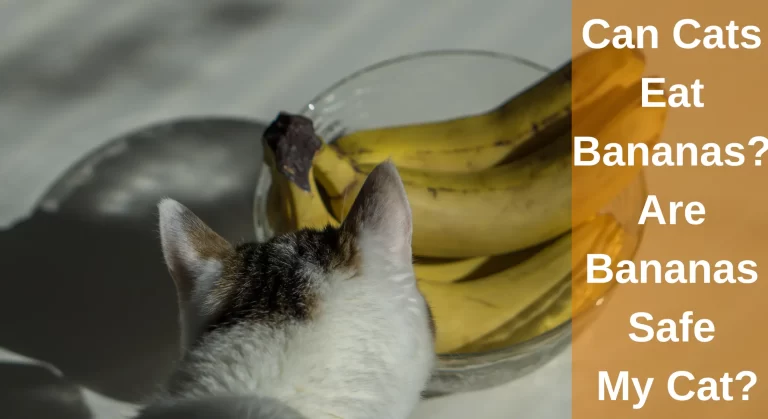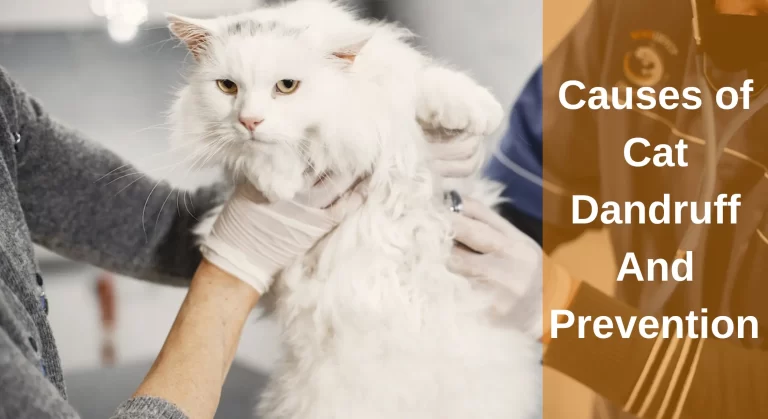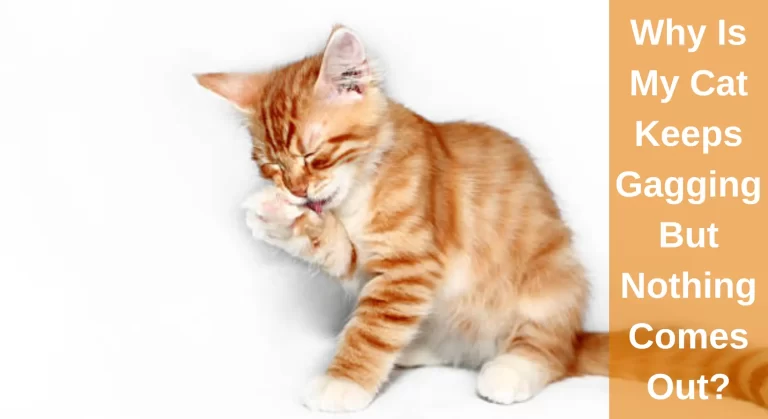How Long Can You Leave a Cat Alone Safely? Things You Need To Know
As much as we love our cats and want to spend every second with them, life happens, and we need to leave the house from time to time, sometimes even for days. If nothing else, we have to go to work. So what about our feline babies? How long can you leave a cat alone safely? Do you need to hire a cat sitter, or will your pet be just fine on its own?
If you leave for 8-12 hours, your adult cat will be fine, provided they have ample food and water. The general rule is that things should work out as long as you come back within a 24-hour period. Any more than that is disastrous. This article is about leaving your cat alone and ensuring its safety.
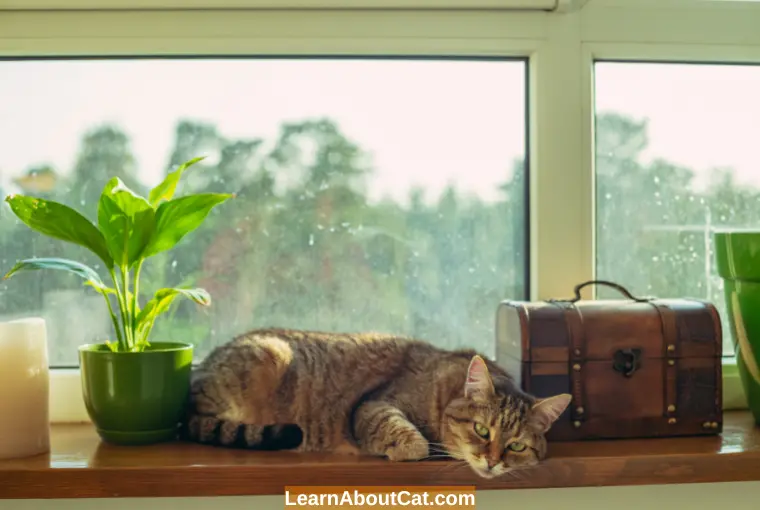
Leaving Cats Home Alone–How Long Can You Leave a Cat Home Alone?
There is a common misconception that cats are independent creatures; however, that is not true. They need their owners for food, water, cleaning the litter box, and general interaction and attention. How long they can be on their own depends on their age and health. Sick or disabled cats cannot be left alone and require a cat sitter. Kittens under four months should never be left alone, as they are just babies and still depend on their owner or their mother for many things. A cat six months or older can be left for about eight hours, and a healthy adult feline can be left for around ten to twelve hours.
Of course, this is on the condition that your pet has access to fresh, clean water, an abundant supply of food that won’t go bad, and fresh litter throughout the day. Also, your place should be cat-proof, meaning all dangerous objects and poisonous substances should be removed.
Can I leave a Kitten Home Alone?
It depends on the kitten’s age. Kittens younger than 4 weeks cannot be left on their own. Kittens from age 4-6 weeks can be left alone for 4-5 hours, provided they have ample nutrition, and all hazards have been taken care of. Kittens older than 6 weeks can safely be left alone for around 8 hours.
Do Cats Get Lonely?
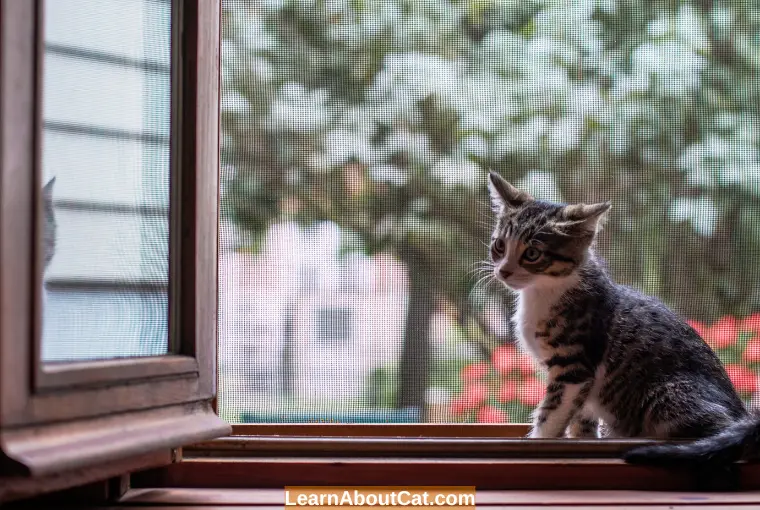
Cats may seem like emotionally detached and apathetic creatures, although this is far from the truth. Research shows that felines get very attached to their owners. Staying away from them for extended periods can upset them and cause feline depression and separation anxiety. Separation anxiety manifests in cats when it gets severe, as cats hide their pain while it’s mild. They will meow loudly and vocalize excessively, stop using the litter box and become extra clingy to you.
Leaving a Cat Alone Overnight
Leaving your cat alone overnight should not pose any problems, provided it has a comfortable and safe environment, plenty of food, water, and a couple of clean litter boxes. Most cats sleep 18-22 hours a day, so they will most probably spend most of their time asleep anyways. However, if you have a kitten, sick, or a cat with special needs, you will need a cat sitter. Alternatively, you can drop your furball off at a friend’s or family’s place for peace of mind.
Also Read: Why Does My Cat Meow at Night When I Go to Bed?
Leaving a Cat Alone for the Weekend
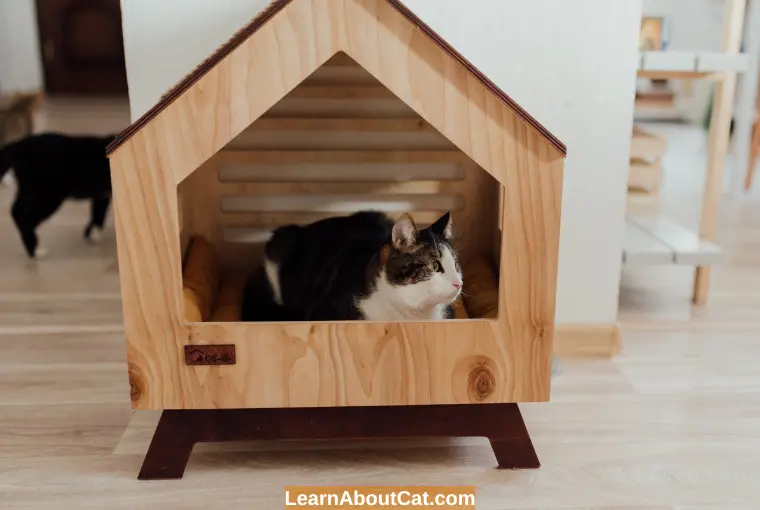
It’s not advisable to leave your cat alone for over 24 hours, let alone an entire weekend. There are several reasons for this:
- Your cat’s food will go bad.
- The litter box will get unbearably filthy. As a result, your pet will start soiling in other areas of the house.
- Your Cat will get lonely and depressed
- Weather changes can make your cat sick
- Your cat can run out of food and water.
- Your pet can injure itself.
As you can see, leaving your feline on its own for an entire weekend is a huge risk. Although you can mitigate the situation by leaving out abundant dry cat food (canned cat food will go bad), getting fancy gadgets like a gravity feeder or smart feeder, purchasing a cat water fountain, arranging a self-scooping litter box, and installing pet cameras to keep an eye on your feline, it is best to drop your feline off at your folks.
Leaving a Cat Alone for Three to Four Days
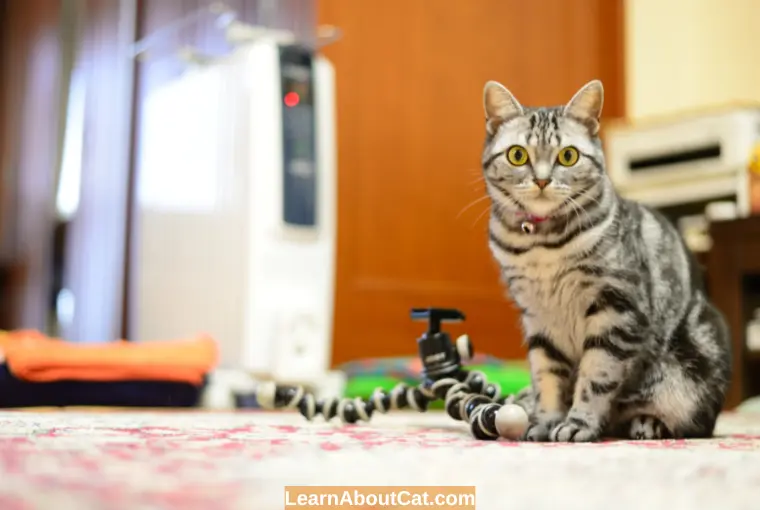
It is never a wise decision to let your cat be on its own for three to four days for all the above-stated reasons. Your feline might get very sick or not survive this long on its own, and this is certainly something you don’t want. The following are some arrangements you can consider for your time away from home:
1. Cat sitter
A cat sitter is a professional cat nanny who checks on your feline for a few hours every day. They will scoop the litter box, arrange fresh food and leave out water for your feline. They will even interact and play with them. Of course, hiring a cat sitter is a load on your pocket, but it comes with the peace of mind that your furball will be okay.
2. Cattery
Catteries are boarding establishments for cats where many felines are professionally taken care of. They are a preferred choice for many cat parents.
If you travel regularly and are considering keeping your pet in a cattery from time to time, it is recommended to get your furball used to them from a very young age. This is because catteries can be intimidating to many felines. Not only is their environment changing, but they are also surrounded by a bunch of other cats. Cats are territorial creatures and are not immediately comfortable around new animals.
3. Friends and Family
Leaving your beloved feline with your friends and family is obviously the superior choice. Not only is it light on your wallet, but you are also leaving your pet with people you love and can trust. Also, your cat may already be comfortable with them if they come over a lot, so it won’t be a drastic change compared to the above options.
Leaving Cat Alone for a Week
Leaving your cat alone for a week is a recipe for disaster. It will run out of food, the food will go bad, it will run out of water, and the house will get filthy very fast once it runs out of clean litter. Not only that, cats need social interaction. Locking your cat inside a house alone for a week is downright irresponsible. You will need to consider the options above if you are going away for that long.
How to Leave Your Cat Home Alone / How to Keep Cats Entertained?

If you are leaving your cat home alone, there are some things to be mindful of:
Food: Leave an ample supply of fresh food out for your feline. If possible, arrange for a gravity feeder. Only leave out dry kibble as wet canned food spoils fast.
Water: Arrange a proper amount of fresh water. Alternatively, you can arrange a cat water fountain that will turn on only when your cat comes close to it.
Litter: Put out fresh litter in your cat’s litter box. You can put out a couple of boxes or purchase a self-scooping litter box.
Temperature: Adjust the thermostat so that it is neither too hot nor too cold.
Safety: Make sure that all the windows are closed, and lock the door behind you, so your cat stays indoors. Also, cat-proof the apartment and make it safe for your feline by removing all hazardous objects.
Entertainment: Leave out your pet’s toys to allow for ample stimulation and playtime while you are away. You can invest in puzzle feeders, cat scratchers, vertical space (cat trees), and mouse toys. You can also hide food around your place for your cat to hunt.
Cameras: You can invest in pet cameras to keep an eye on what your feline is doing while you are away.
Frequently Asked Questions
The Bottom Line on How Long Can You Leave a Cat Alone Safely
Having a cat is a huge responsibility. A healthy adult feline can handle being left alone at home for 8-12 hours as long as it has a constant supply of fresh food, water, a clean litter box, and items to play with. Any more time than that, and they will require either a cat sitter, being dropped off at a cattery, or being taken care of by friends and family.
Who is Isabella?
My name is Isabella, and I am a dedicated and knowledgeable cat enthusiast. With years of experience caring for cats and a deep love for felines, I made a mission to help other cat lovers navigate the challenges of cat ownership.

